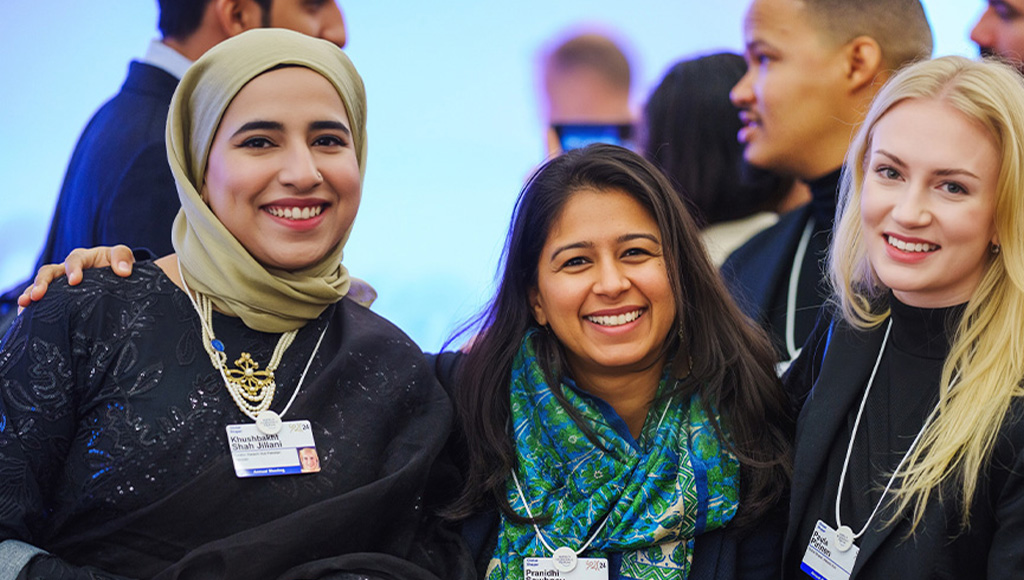
Insights | February 13, 2024
Authenticity and action: Key takeaways for young leaders from Davos 2024
Roschier's associate Paula Pirinen attended the World Economic Forum (WEF) in Davos as a part of the Davos50 delegation. She describes the event as a unique experience, providing insights into the global economic landscape and emphasizing the crucial role of young leaders in shaping the future. We sat down with Paula for a Q&A.
How did you end up attending the World Economic Forum in Davos?
I attended the World Economic Forum as a part of the Davos50 delegation, which brings together 50 leaders under the age of thirty. We are all members of the Global Shapers initiative of the World Economic Forum, which I’ve been part of since 2017. This year, we represented 45 countries and cities from Nicaragua to Hong Kong and from New Zealand to Finland.
As a young leader, how do you perceive your role in influencing and contributing to the global economic agenda?
More than 50% of the world’s population is under the age of 30, while less than 3% of the world’s parliamentarians are in this age group. The average age of a board member in an S&P 500 index listed company is over 60. I think young people should have more and better opportunities to be involved in key decisions as they are the ones who will live the consequences. Both in politics and in business, this exclusion from decision-making reinforces intergenerational mistrust.
What trends or emerging issues do you think will have a profound impact on the global economy?
The two main themes of the WEF were geopolitical tensions and the impact of generative AI on the workforce. As we have seen, international conflicts have a huge impact on trade, economic growth and collective efforts to mitigate the climate crisis. With superpower competition and growing concerns about the effectiveness of existing global governance mechanisms, many are turning to so-called “middle powers” and regional groupings as alternative avenues.
AI is likely to shape our economies in both the short and long term: according to the IMF, around 60% of jobs in advanced economies, like Sweden and Finland, are exposed to AI. On a positive note, generative AI is driving innovation, creating a revolutionary wave across global economies, bringing new economic opportunities, and underscoring an inherent commitment to societal responsibility.
How would you summarize the WEF experience?
Participating in discussions and panels with top leadership and experts from across the globe expanded my understanding of the intricate connections between the corporate world, world politics, and emerging trends. As a corporate lawyer, this interconnectedness emphasizes the impact of my actions and underscores the need for responsible, socially conscious strategies in navigating the complex business landscapes.
Inspired by my Davos50 peers, I am committed to effecting positive change through legal work, and I believe that the concept of ‘thinking globally, acting locally’ should be at the heart of our approach. The starting point for positive impact is in our own communities and ways of working, and I aspire to use my new insights to contribute to ethical, sustainable, and globally conscious business practices.
My advice to young professionals is to be bold in sharing your opinions, and to seize opportunities to voice your knowledge and perspectives. Be yourself – you’re here for a reason.